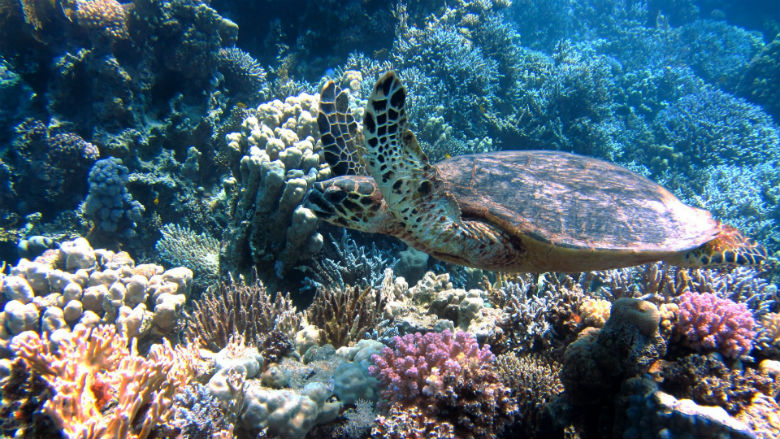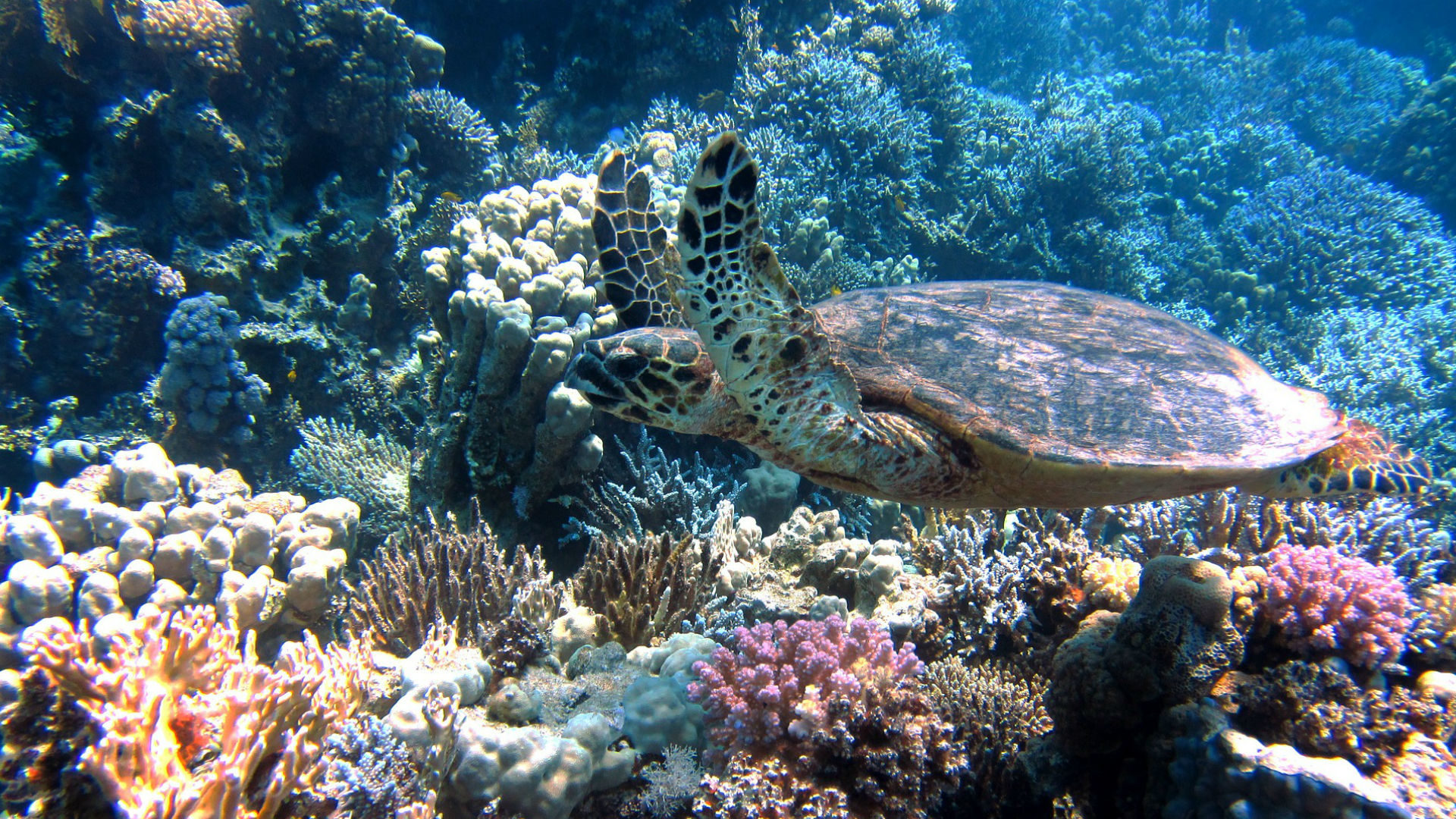
In 2020, we’re excited to be teaming up with Seeking Survivors to create a Tropical Coral Research Facility at our centre of Ocean excellence, the National Marine Aquarium in Plymouth. The facility will be used to develop a diagnostic tool for coral health to understand how they both remain and return to a healthy state – so that those corals most likely to survive can be identified and reefs may eventually be restored.
Here, Seeking Survivors Director and Coral Immunologist, Caroline Palmer, explains the importance of healthy reefs – as well as how this ground-breaking project aims to ultimately help conserve and restore them.
Healthy tropical coral reefs are magnificent, vibrant and diverse undersea communities, and are captivating to be surrounded by. The solid and labyrinthine reef structure is built mostly by corals – colonial invertebrates with anemone-like polyps that produce a hard skeleton.
Corals come in all kinds of shapes and sizes, depending on the species and the environment they are growing in. The living coral structure provides homes and resources for the 25% of all known marine life that depend on it, yet reef building corals only exist in the shallow waters of tropical Oceans.
The release of greenhouse gases, like carbon dioxide, has warmed the Ocean and shifted its chemistry and currents, creating conditions and events that corals cannot survive. Without coral, tropical reefs become underwater ghost towns – the noise and hubbub of a thriving, diverse system disappears, and with it the ecosystem services that so many depend upon. To see this shift occur on reefs I have worked on for years is heart-breaking. To know that it is happening on reefs all over the tropics is devastating.
I am a coral immunologist, which means I investigate how corals stay healthy, are able to tolerate unfavourable conditions and recover. I have always been fascinated by how some corals on a reef become ill before others, and why some types seem to die first and other types not at all, or very rarely. As well as counting which corals live and which die, it is important to me that we understand why. If we understand why a coral survives, we can search for corals most likely to survive in the future and engineer more tolerant coral, and therefore improve conservation and restoration outcomes.
I started Seeking Survivors as a coral research project in Costa Rica in 2017. The aim of the project was to understand the current state of the coral reefs, how the coral immune systems help them stay healthy through big seasonal changes and to “seek” the corals most likely to “survive” climate extremes.
Seeking Survivors, now a charity, is working to conserve coral reefs using science and community – putting cutting-edge research at the forefront of our projects and sharing it with the public. In the Ocean Lab at the Ocean Conservation Trust’s centre of excellence, the National Marine Aquarium in Plymouth, we are working with the charity to build a Tropical Coral Research Facility. We will use this new facility to develop a diagnostic tool for coral health – so we can quickly find those corals most likely to survive and know whether a more tolerant coral has in fact been engineered.
To understand how coral stays and returns to health, we are working on a model organism -an anemone called Exaiptasia pallida, known colloquially as Aiptasia. It is easier to work with anemones than coral, as they grow quickly and we can rapidly create numerous genetically identical individuals to more easily interpret our experiment outcomes. We are testing the health limits of these anemones, in various ways, and measuring changes in key immunity pathways.
We have continued our coral reef monitoring in Costa Rica, working with local community members to understand and conserve their coral reefs. To date we have identified reefs of high conservation importance and identified corals with higher immunity that would be ideal to use in restoration projects.
We are racing against time to conserve coral reefs. It is conservatively estimated that we have already lost 30% and, with unabating climate change, coral reefs are continuing to decline. Such drastic loss is affecting the livelihoods >500 million people, and local and national economies that depend on them.
As well as dramatically cutting carbon emissions, both nationally and personally, coral reefs need urgent, proactive conservation to ensure they maintain their key ecosystem services into the future – supporting unrivalled marine biodiversity, feeding millions and providing livelihoods.
If you would like to find out more about the work of Seeking Survivors, or to get involved, please visit the website www.seekingsurvivors.org .

